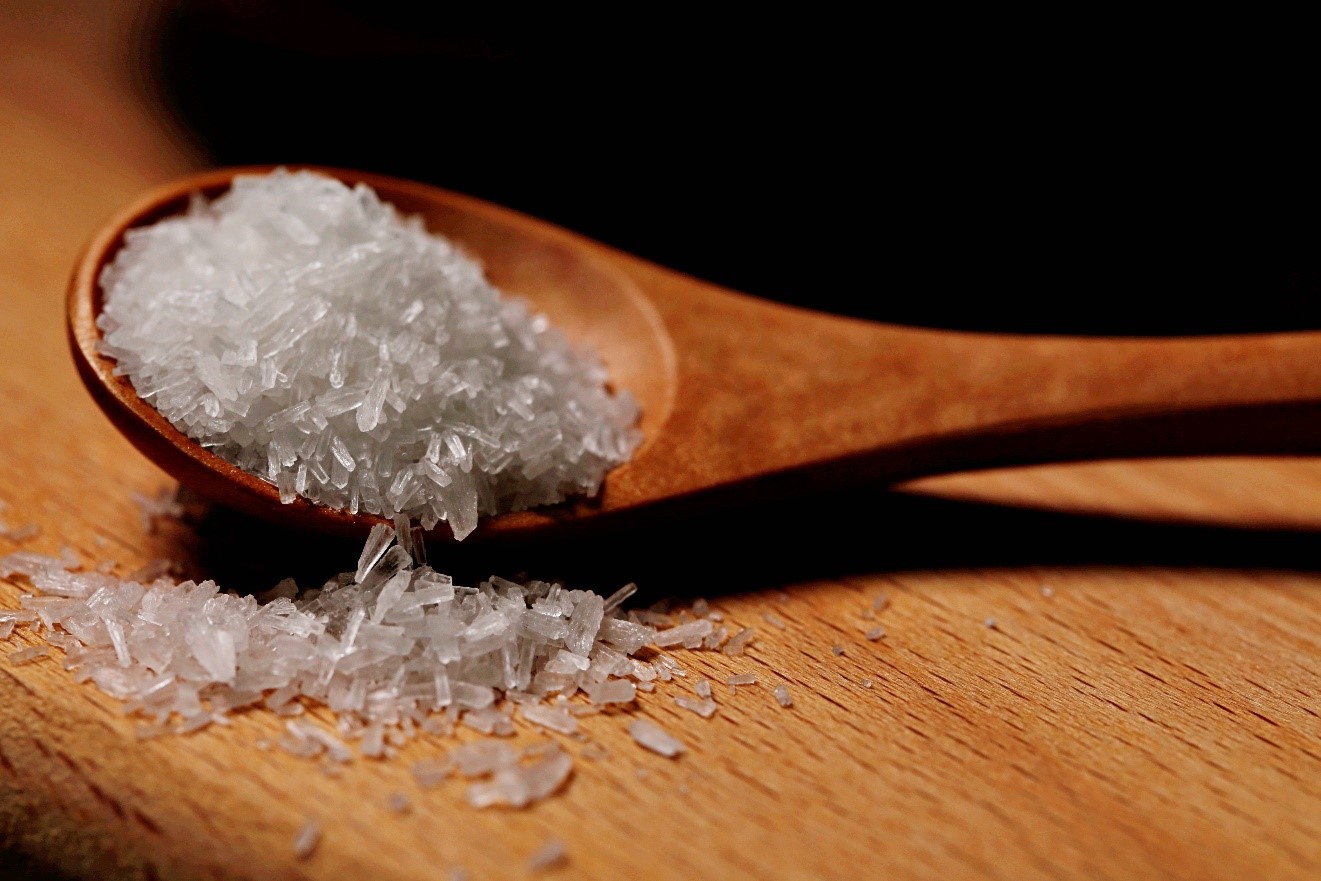Reduce the risk of high blood pressure and cardiovascular diseases from salt consumption habits
Salt is a familiar seasoning with many health benefits, but excess salt consumption can lead to the risk of serious diseases, especially high blood pressure - the main cause of stroke and many other cardiovascular diseases.
Vietnamese people are using too much salt.
Dr. Nguyen Thi Huong Lan, Head of the Department of Nutrition, Xanh Pon General Hospital, said that according to the World Health Organization (WHO), adults should consume no more than 5g of salt per day to reduce the risk of cardiovascular diseases. However, according to a survey by the Department of Preventive Medicine (Ministry of Health), Vietnamese people consume an average of about 9.4g of salt per day, nearly twice as high as recommended. Of which, the amount of salt mainly comes from synthetic spices (35%), fish sauce (32%), and processed foods (12%).
 |
Dr. Nguyen Thi Huong Lan, Head of Nutrition Department, Xanh Pon General Hospital, shares about reducing salt consumption in the program New Day Story. |
Table salt, scientifically known as Sodium Chloride, is composed of one element Sodium (Na) and one element Chlorine (Cl), with the chemical formula NaCl, in which Sodium is an essential mineral for the human body. Sodium has a physiological regulatory function, helping to maintain cell osmotic pressure, regulate nerve cell communication, support muscle activity, regulate blood pressure, support digestion and absorption of nutrients, and maintain water balance in the body.
Salt has a distinctive salty taste, and is one of the five basic tastes along with sweet, sour, salty and umami (umami was first discovered by Japanese Professor Kikunae Ikeda in 1908). Salt is an indispensable spice in cooking, making dishes more flavorful and delicious.
Salt and heart health
According to Dr. Nguyen Thi Huong Lan, although salt plays an important role in health as well as in food processing and preservation, using excess salt will lead to many health risks, typically increasing the risk of high blood pressure and complications of the disease.
 |
Excess salt consumption is the leading cause of high blood pressure. |
“High blood pressure can cause many dangerous complications such as atherosclerosis, stroke, visual disturbances, myocardial infarction, heart failure, and kidney-related diseases. Stroke is one of the leading causes of death in Vietnam.” - The doctor added.
Eat less salt - small action, big benefits
Reducing salt consumption is a necessary measure to protect health, especially cardiovascular health. We can do this by changing our daily eating habits and food preparation methods. Below are 5 methods that Dr. Nguyen Thi Huong Lan suggests to help reduce the amount of salt in our daily diet:
1. Know the sodium content of foods: Consumers need to check the nutrition information on food labels to choose products with less salt.
 |
| Read food labels before buying to avoid products high in salt. |
2. Gradually reduce the amount of salt so that the eater does not notice: During the cooking process, the cook can gradually reduce the amount of salt below 10% so that the eater does not feel any change in taste.
3. Reducing salt combined with using other flavor enhancing ingredients makes salt-reduced dishes more easily accepted: Currently, in the world, many studies and recommendations have confirmed the effectiveness of a spice called MSG in reducing salt without changing the delicious taste of the dish thanks to its low sodium content, only 1/3 compared to table salt.
Since 2010, the US National Salt Reduction Strategy Committee has recommended the use of MSG as an effective method to help maintain a low-salt diet.
In Vietnam, the Ministry of Health has instructed that MSG can be used to replace part of the salt to help increase the deliciousness of low-salt foods and reduce salt intake. Other countries such as Brazil, Finland, France, Singapore, Denmark, and South Korea have all researched and shown that MSG can maintain the deliciousness of low-salt foods.
 |
MSG is used in many countries as a solution for low-salt diets. |
In Vietnam, the Vietnamese Ministry of Health also includes MSG in the list of additives allowed for use in food processing. This is also a safe ingredient for pregnant and lactating mothers and children.
4. Use salt substitutes: Some substances such as potassium chloride, calcium chloride, or magnesium chloride can replace salt to reduce sodium. Currently, there are some businesses on the market that produce seasoning/food products that reduce salt by replacing part of the sodium, such as Kho Quet Instant Sauce using potassium chloride salt substitute, Ajinomoto's reduced salt Fuji Soy Sauce reduces the amount of salt directly in the product formula.
5. Be proactive in reducing salt in cooking and eating: Approaches include reducing the amount of salt in spices, not placing salt shakers or salty spices on the dining table, and limiting the use of processed foods that are high in salt.
Source: https://baodautu.vn/giam-nguy-co-tang-huet-ap-va-cac-benh-tim-mach-tu-thoi-quen-tieu-thu-muoi-d226209.html


![[Photo] General Secretary To Lam receives US Ambassador to Vietnam Marc E. Knapper](https://vstatic.vietnam.vn/vietnam/resource/IMAGE/2025/3/31/5ee45ded5fd548a685618a0b67c42970)
![[Photo] Prime Minister Pham Minh Chinh receives delegation of leaders of US universities](https://vstatic.vietnam.vn/vietnam/resource/IMAGE/2025/3/31/8be7f6be90624512b385fd1690124eaa)


![[Photo] Speeding up construction of Ring Road 3 and Bien Hoa-Vung Tau Expressway](https://vstatic.vietnam.vn/vietnam/resource/IMAGE/2025/3/31/f1431fbe7d604caba041f84a718ccef7)
![[Photo] 2nd Conference of the Party Executive Committee of Central Party Agencies](https://vstatic.vietnam.vn/vietnam/resource/IMAGE/2025/3/31/8f85b88962b34701ac511682b09b1e0d)



























































































Comment (0)